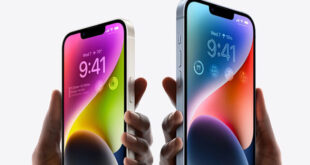
One of the advantages of Microsoft Windows is its generally excellent approach to backwards compatibility. Thanks to a mixture of virtual machine support and native OS capabilities, you can generally run x86 apps from any era in a modern system. There are exceptions to this, but backwards compatibility works very well, more often than not.
Apple, in contrast, has been aggressive about its move to 64-bit compared with 32-bit, and it’s preparing to leave 32-bit software behind altogether with its upcoming iOS 11. Google has made some moves to shift to 64-bit only as well, though its overall level of deployment lags Apple in this regard, partly because of how long it takes Google devices to receive the latest version of Android in the first place.
Thus, iOS 11 will be the first Apple OS to drop support for the 2012-era iPhone 5, the 4th-generation iPad, and the 2013 iPhone 5c, which uses the same hardware as the iPhone 5. While the iPhone 5 and 5c are slow by modern standards, the issue isn’t RAM or raw performance, it’s the ability (or lack thereof) to run 64-bit apps and programs.
But that’s not the only change coming in iOS 11. In the new operating system, it’ll be 64-bit-or-nothing — Apple is also removing 32-bit app compatibility from the entire OS stack. In the long run, Apple may even remove the ability to run 32-bit software from its processors, freeing up the silicon otherwise devoted to this capability for handling other tasks.
iOS 11 will run on the iPhone 5s and all follow-up smartphones, including the SE. It also supports the iPad Air and Air 2, the iPad Mini 2, 3, and 4, and the iPad Pro. Fifth-generation iPads are also supported, as is the sixth-generation iPod Touch.
Credit: Kevin of Afterpad.com
This shift will have significant implications for users who still rely on older apps that aren’t updated often or, in some cases, may not have been updated in years. It’s not clear yet whether developers of older programs that may have made the bulk of their money already will update them for 64-bit. Right now, the implication seems to be that applications developed for 32-bit simply will not work on iOS 11 without a 64-bit update. That could frustrate users if Apple doesn’t inform them that upgrading from iOS 10 to iOS 11 could result in a reduction in overall device functionality.
We don’t know yet how much of a problem this will be. But if you have an older iPhone with apps you still use regularly that aren’t updated often, you may want to check that situation carefully before upgrading to iOS 11.
 #Bizwhiznetwork.com Innovation ΛI |Technology News
#Bizwhiznetwork.com Innovation ΛI |Technology News




